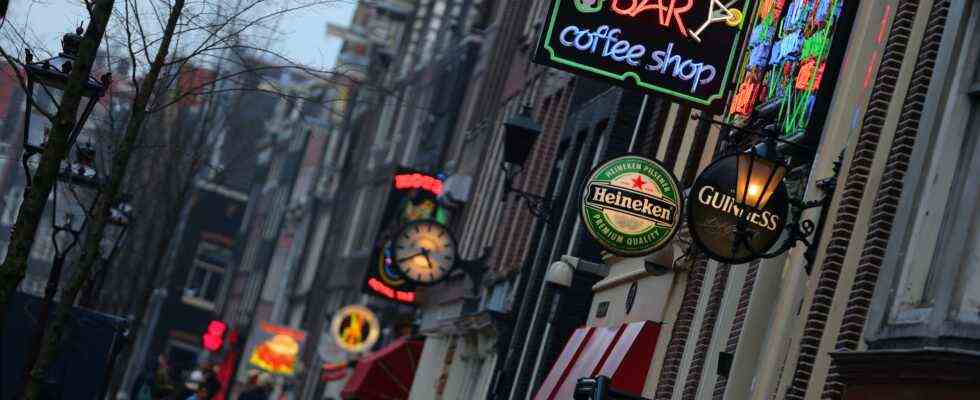As of: 10/29/2021 5:11 a.m.
The coalition negotiations in Berlin could also be about the legalization of cannabis. The Netherlands has decades of experience with it. Experts from there advise Berlin, above all, not to repeat a mistake.
“Legalize it” – our neighbors in the northwest have a 45 year lead. Dutch coffee shops have been allowed to sell cannabis for their own use since the mid-1970s. Only the purchase was never regulated, and that was a big mistake, says the criminologist Robin Hofmann from the University of Maastricht: “In the coffee shops you could buy cannabis legally, but they never had the opportunity to buy it legally. And this loophole filled the drug gangs back then and built a large network. “
The organizations then increasingly used this network for the cocaine trade, with which much more money can be made. According to the European police authority Europol, Belgium and the Netherlands have become the main hub for the cocaine trade in Europe.
The Dutch are traders, says Tilburg sociologist and crime expert Pieter Tops: “And drugs are an interesting form of trade: they can be consumed, but they also have to be produced. And you can earn a lot of money with them. That fits a bit.” on the character and history of the Netherlands. “
The infrastructure facilitates drug trafficking
Rotterdam and Antwerp are the largest ports in Europe. Last year, a total of 100 tons of cocaine were seized in both ports. In addition, there is perfect logistics to distribute the material, and gangs whose members are capable of anything – according to Europol, especially in the hands of Moroccans and Albanians.
The Dutch lawyer Vito Shukrula represents some. He describes how clan bosses recruit helpers: “Some of them take over entire neighborhoods. They show who the boss is. People listen to them and think: If I take part in a murder, then I can drive a Mercedes too. Have a nice watch, beautiful women and champagne in the club. “
Challenge to society
Experts attribute 25 to 30 contract killings per year to the drug milieu, some are carried out on the street with automatic weapons. The victims increasingly include bystanders and attorneys for key witnesses; in July the well-known journalist Peter R. de Vries was killed.
Police have temporarily increased protection for Prime Minister Mark Rutte, who enjoys cycling to cabinet meetings. The gangs openly threatened society and infiltrated it, says Maastricht expert Hofmann: “That means that the fairytale profits from the cocaine trade are reinvested in the real economy, in the real estate market, in restaurants, hotels, football clubs – that state institutions are undermined . “
The Dutch politicians underestimated the problem for a long time, says the criminologist Tops – although health aspects were discussed, but not the criminal law: “It was said that cannabis production in the Netherlands would remain limited to the local market, that it was of no interest to criminals because too little To get hold of it, it is too difficult for foreigners to come to the Netherlands for that. In retrospect, we have to say that that was a very naive view. “
From the transit country to the producer
In addition, the Netherlands saw itself only as a transit country from which drugs are quickly transported across the borders. In fact, they have developed into the country of manufacture. Ecstasy laboratories around Tilburg in the south produce around one billion pills per year – estimated sales: almost 19 billion euros.
The conclusion of the Maastricht expert Hofmann: “It has been approached too laxly for too long. It has been allowed to run, actually only tried to recapture it in recent years. And when organized crime becomes established and the structures expand, then it will at some point difficult to solve the problem again. “
Coffee shops should now only offer cannabis from controlled cultivation. Amsterdam’s Green Mayor Femke Halsema also wants to stop sales to foreigners. The Tilburg criminologist warned Berlin: “There is always an illegal environment, and the police and authorities have to keep that down. That is an important lesson: legalizing or regulating cannabis is not an easy thing and needs a lot of attention.”
In principle, the Dutch criminologists have no objections to any legalization plans for the German traffic light – as long as they learn from the mistakes of the Netherlands.
Legalize it – what Germany can learn from the mistakes of the Netherlands
Jakob Mayr, ARD Brussels, October 28, 2021 6:14 p.m.

